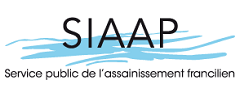WECF's contribution to the network of science shops and call on EU Commission
2nd International Conference on Living Knowledge in Sevilla
24.02.2005 |Margriet Samwel

and
Science shops call on European Commission to strengthen citizens’ involvement in research
The international network of science shops „Living Knowledge“ held a conference in Sevilla, on 3-5 February 2005. The conference addressed the relation between citizenship and science and technology.
In the session “network” a presentation “International NGO Networks and Science Shops: New opportunities for both” was given by Maureen Butter of the science shop for Biology Groningen University with participation of WECF and ANPED, the Northern Alliance for Sustainability.
Download the full report on Living Knowledge (doc).
Download the presentation on International Partnerships and Networking (ppp).
Download the full report on International NGO Networking (doc).
Press release of the international Science Shop network
Bonn, March 4, 2005
European Commission should strengthen citizens’ involvement in research
At the beginning of February around 250 people from 30 countries all over the world participated in a three day international conference in Seville, Spain which focussed on ‘Advancing Science and Society Interactions’. The conference was organised by the International Science Shops Network that has been awarded financial support by the European Commission through a project called ISSNET (Improving Science Shop Networking).
Scientists all over Europe are more and more developing creative activities to improve the public understanding of science and technology. But demonstrating the ‘wonder of science’ is not sufficient. Our knowledge based society only works if knowledge transfer towards citizens takes a clear turn for the better.
The 2nd ‘Living Knowledge” Conference, held in Seville from 3-5 February 2005, offered a unique opportunity to scientists, researchers, policy-makers and practitioners in community based research to share experiences and build networks for approaching citizens’ participation in science. The conference did not simply present useful approaches in knowledge transfer but also opened many possibilities for future cooperation.
In workshops and plenary sessions more than 60 speakers not just from Europe but also from North-, Central- and South-America, Africa, the Middle East and Far East gave their examples of best practices. Out of the huge palette of presentations and experiences at least three main conclusions can be drawn:
Growing need for true participatory activities
Community based research shows a great and attractive variety of ways for involving societal groups. But there is still a growing need for true participatory activities, having citizen groups and researchers working together in research projects on an equal footing. Citizens want to be able to take part in the research and decision making process in order to address the problems and conflicts they experience.
Breaking out of the local
Citizens’ concerns and needs for research seem on the face of it to be very local and particular. But from the examples given at the conference it became clear that the demands expressed by societal groups are not local at all. At many places all over the world the same needs and the same demands for the sharing of knowledge are expressed. Breaking demands and needs out of the local necessitates collaboration and research cooperation at an international level. It broadens the base of knowledge and experience and increases citizens’ empowerment.
Strengthening the EC Science and Society programme
At the ‘Living Knowledge’ conference there was a strong will to build on the momentum to strengthen the EC Science and Society programme by providing further input to its activities. In the 6th framework programme the EC started a process to implement science and society interactions in the European Research Area. This process is not finished yet and should be continued in 7th framework programme. Conference participants and all actors in „science/society“ issues are invited to give input to the development of new ways and new activities that will strengthen citizens’ involvement in research.
The international Science Shop network will be at the “Science in Society Forum 2005” from 9-11 March in Brussels. Please visit us at stand 21 in section “The local and regional dimensions of knowledge transfer”.
Notes:
The conference was part of the EC project ISSNET (Improving Science Shop Networking). This project is funded under the FP5 Human Potential programme (project number HPRP-CT-2002-00011).
For more information about this project, science shops or the conference please contact the
International Science Shop Network Living Knowlegde at:
isso@bio.uu.nl, +.31.30.2535796, www.scienceshops.org , www.livingknowledge.org
Caspar de Bok (c.f.m.debok@bio.uu.nl), Norbert Steinhaus (norbert.steinhaus@wilabonn.de)

































